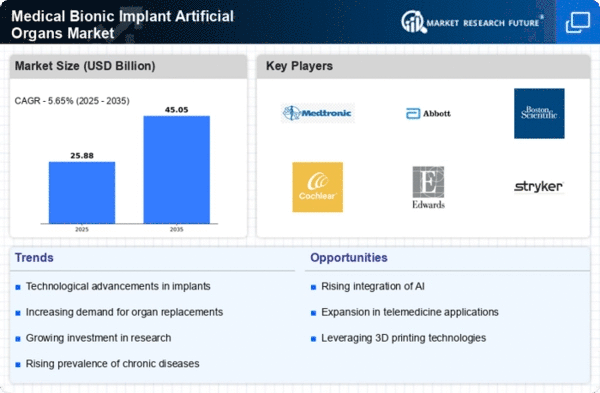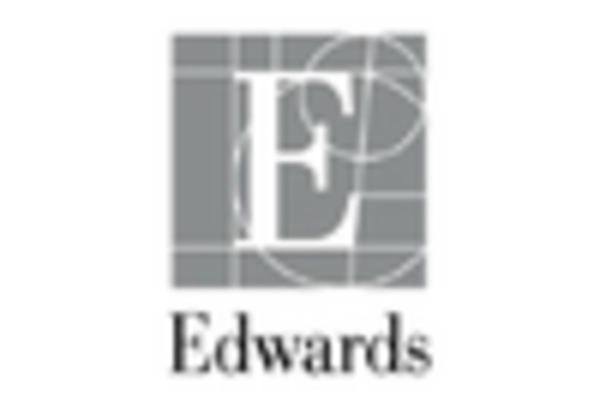Market Analysis
In-depth Analysis of Medical Bionic Implant Artificial Organs Market Industry Landscape
The medical bionic implant and artificial organs industry market dynamics are shaped by three main factors which are technological advancement, increasing prevalence of chronic diseases, and a rapidly aging population. This sector has grown tremendously over the years due to the continued innovation in tackling medical problems and improving patients’ quality of life.
Continuous technology changes bring about market dynamics. Medical bionic implants and artificial organs are highly influenced by innovations in materials science, robotics as well as bioengineering. These developments boost not only the already existing devices but also make way for the creation of new solutions that were previously considered impossible to imagine. This results into a dynamic situation where companies compete to be ahead with new technologies.
Moreover, another key factor affecting market dynamics is incidence of chronic diseases. The global increase in such conditions like cardiovascular diseases, diabetes or organ failures require medical bionic implants or artificial organs to be made and adopted globally. These devices may save lives for people whose body organs fail giving them an opportunity for better healthy living. Research and investment options have become available due to increased cases of chronic illnesses hence making this market grow further.
Demographic trends especially an aging population contribute significantly on overall market dynamics in healthcare sector concerning medical bionic implants (MBI). Ageing populations all over the world result in more incidences related ailments among other diseases leading to organ failure as well. Old people will always need some form of health intervention so as to sustain their wellbeing; therefore, incorporating bionic transplantations makes sense. Consequently demand for man-made human parts is on rise globally which implies that there is an entire manufacturing industry that can profit from this trend within healthcare services providers.
Also, if we look at regulatory frames it’s clear how they affect MBI dynamics dramatically . Strict rules guarantee safety and efficiency of these products making them reliable for both doctors or nurses who work with them and patients who use their services thereby enhancing confidence which arises during treatment procedures done through these methods. Time it takes for new product to penetrate the market is also influenced by the regulatory environment as well. Thus, given these legal barriers that have to be overcome by manufacturers, it creates an environment where initiatives must be in line with compliance.
Market dynamics are also influenced by economic factors such as healthcare spending and reimbursement policies. The costs associated with medical bionic implants and artificial organs can be high and their growth may depend on financial considerations. Government policies and insurance coverages greatly determine how affordable these new generation medical solutions are hence affecting the dynamics of the market. Therefore maintaining a balance between innovation and cost effectiveness is crucial for global health systems within which there are limited resources to spend on this problem area.”


















Leave a Comment